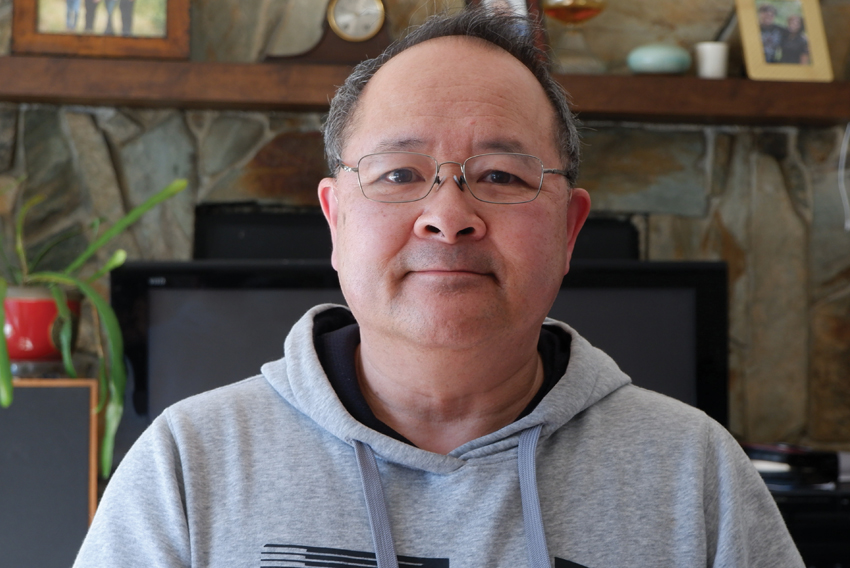Reprinted from the "Responding to Feelings" issue of Visions Journal, 2021, 16 (4), pp. 26-27

On that fateful night, we received a phone call from a university counsellor saying that our son had been admitted to a psychiatric ward. My wife, Laurie, flew out from our home in Fort St. John the next morning and arrived in Moose Jaw, Saskatchewan, in the afternoon. She met our son in his hospital room. He had been sleeping but seemed to be doing OK. Laurie met with his doctor, who said our son had bipolar disorder.
I sort of knew what that was. But my son? Really? My world was collapsing. I was quite terrified; there were so many questions I needed to ask.
Growing up near Chinatown in Vancouver, the only semblance of mental health issues I can remember dealing with was the drunk men lying on the grass in Oppenheimer Park not responding when we went by or falling down flights of stairs and needing the ambulance men to pick them up and take them away. I knew these men weren’t well but not what was wrong with them. At seven years of age, I was definitely not aware of what was really going on.
Moving to the suburbs and eventually living in Fort St. John, a small town, I wasn’t exposed to that anymore, and life was actually quite grand. I was happily married with two children, a son and daughter.
My son was a very social person in high school. Everyone was his friend. But in Grade 12, we noticed he was having bouts of depression. At first, we felt he was having teen issues. My wife and I were always able to talk to him, and within a day or so he would seem just fine.
But that year, at the end of August, when he came home from a summer camp where he was a counsellor, he was definitely in a depressed mood; these were not normal teen emotions. We were very concerned. We brought him to our family GP, who prescribed him a small dose of antidepressants. That seemed to work quite well; he appeared a lot happier and his anxiety lessened.
Our children eventually went to university to advance their education, and my wife Laurie and I felt we had done our job. But in my son’s very first month away at school, we started getting strange phone calls and emails from him. His conversations did not make any sense; we suspected something was wrong. This went on for weeks, and we nearly decided to go see him and possibly bring him home.
Then came that fateful call. He ended up staying in hospital for 10 days and was eventually let out on day passes. After 14 days he went back to school. He finished the school year and came home for the summer.
By that time I was very stressed out. I had talked to his doctors, searched the internet and read books to find answers to my questions about bipolar disorder, but I still didn’t know what to do. So I sought out a support group through the local health unit. The help and advice of others was really useful. I didn’t feel so alone or helpless anymore. My wife eventually joined too. This was very important because we were now a dual team. Over time we were able to take the tools we learned and apply them in our family situation.
Laurie and I found that trying to get our son to trust us was helpful. We had to learn how to talk to him and listen to his feelings without letting him see that we were so stressed out. We decided to not ride the emotional roller coaster with him; this was better for us, and we could understand his feelings more objectively. My son could call us 24 hours a day without judgment. This gave him the freedom he needed to build confidence.
I spent countless hours talking to him, and we were even able to negotiate the problems we had as father and son. To keep his trust, I would try not to give fatherly advice unless he asked me for it. Over time, just listening to his ideas, hopes and dreams helped him with his self-confidence.
My son has always been compliant with his medication. With our love and help, he has felt that we are on his side. He misses the social party man he used to be back in high school but adores the new person he is now. Learning about mental health has made me a more compassionate man.
If I were to give other parents tips about how to react when a grown child is having big emotions, I would say to give them a lot of space. Don’t tell them what to do. Keep talking and listening. Keep your voices down. Give them ideas and wait for their reaction. Ask: “Do you trust us?” and “How do you feel about your long-term goals? Would you like to keep doing what you’re doing, or would you like to stop?” That calms them down, and they start to think about the future.
More than a decade on, our journey has a happy ending, but we will continue to be there for our son and others.
About the author
Jerry is a first generation Chinese Canadian who has lived in Fort St. John for the past 38 years. By educating himself and seeking support, he has learned how to help his son cope with mental health challenges. Jerry speaks two language and has been a career baker his whole life. Now semi-retired, he bakes for the local farmer’s market
